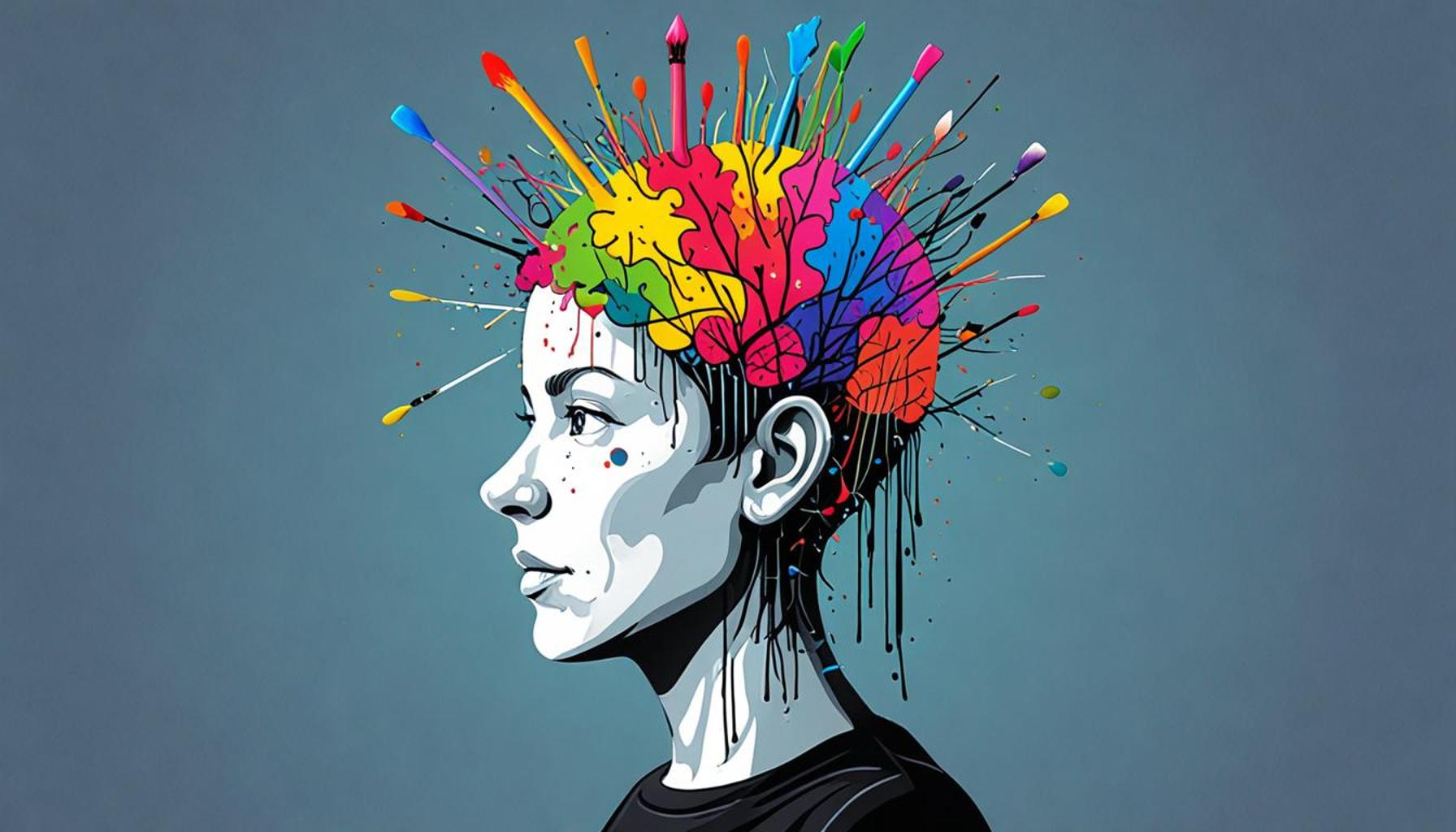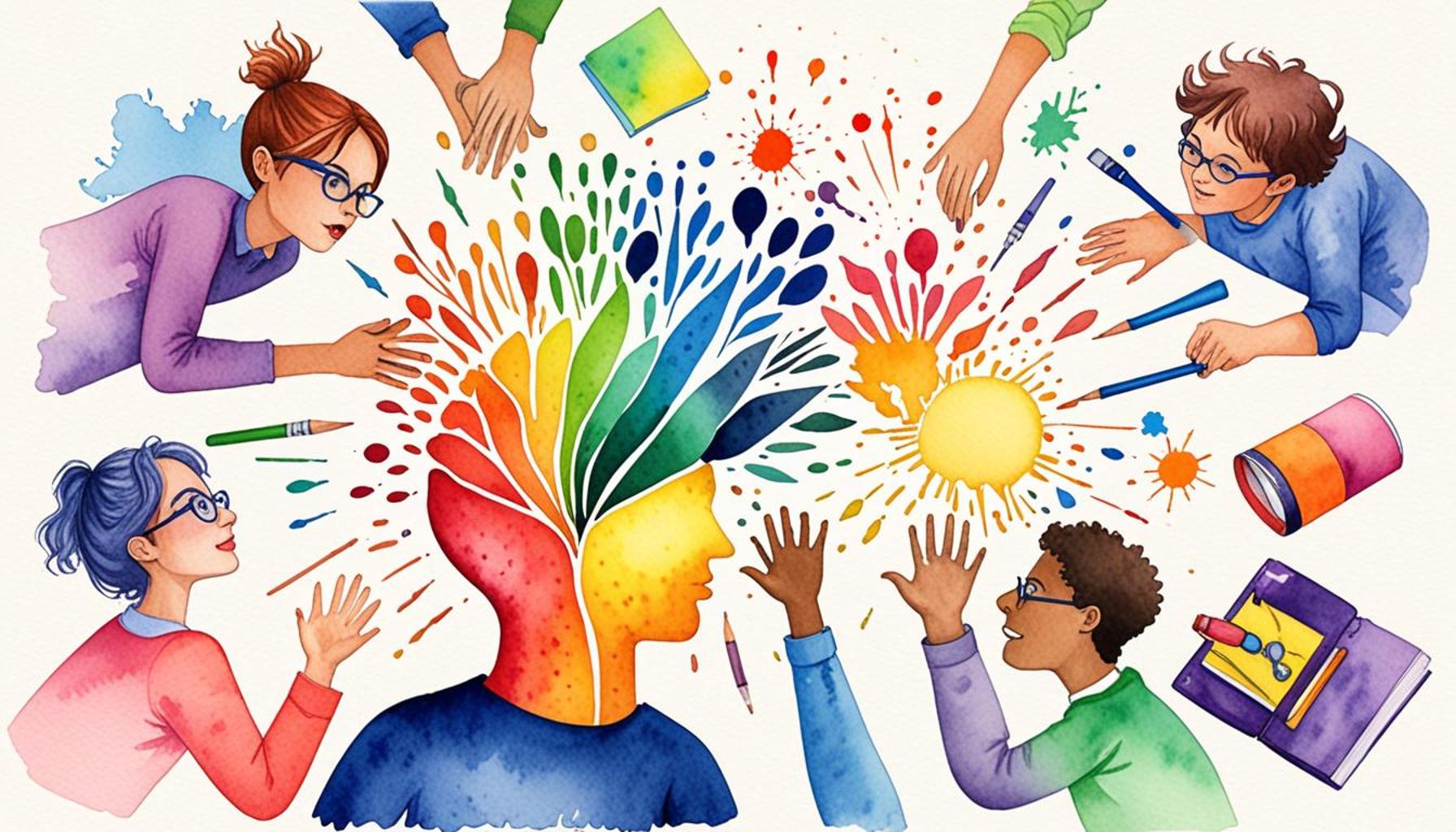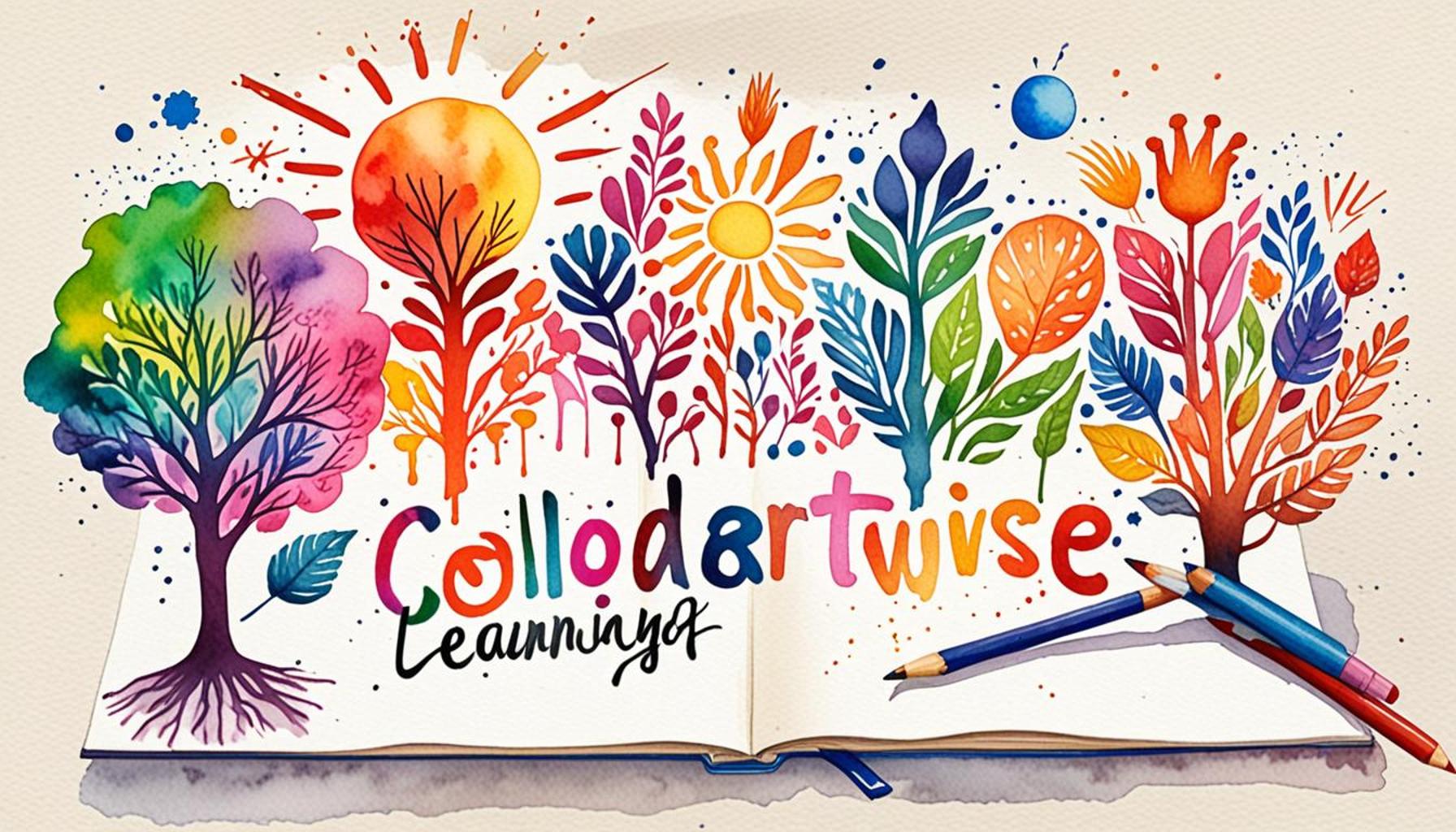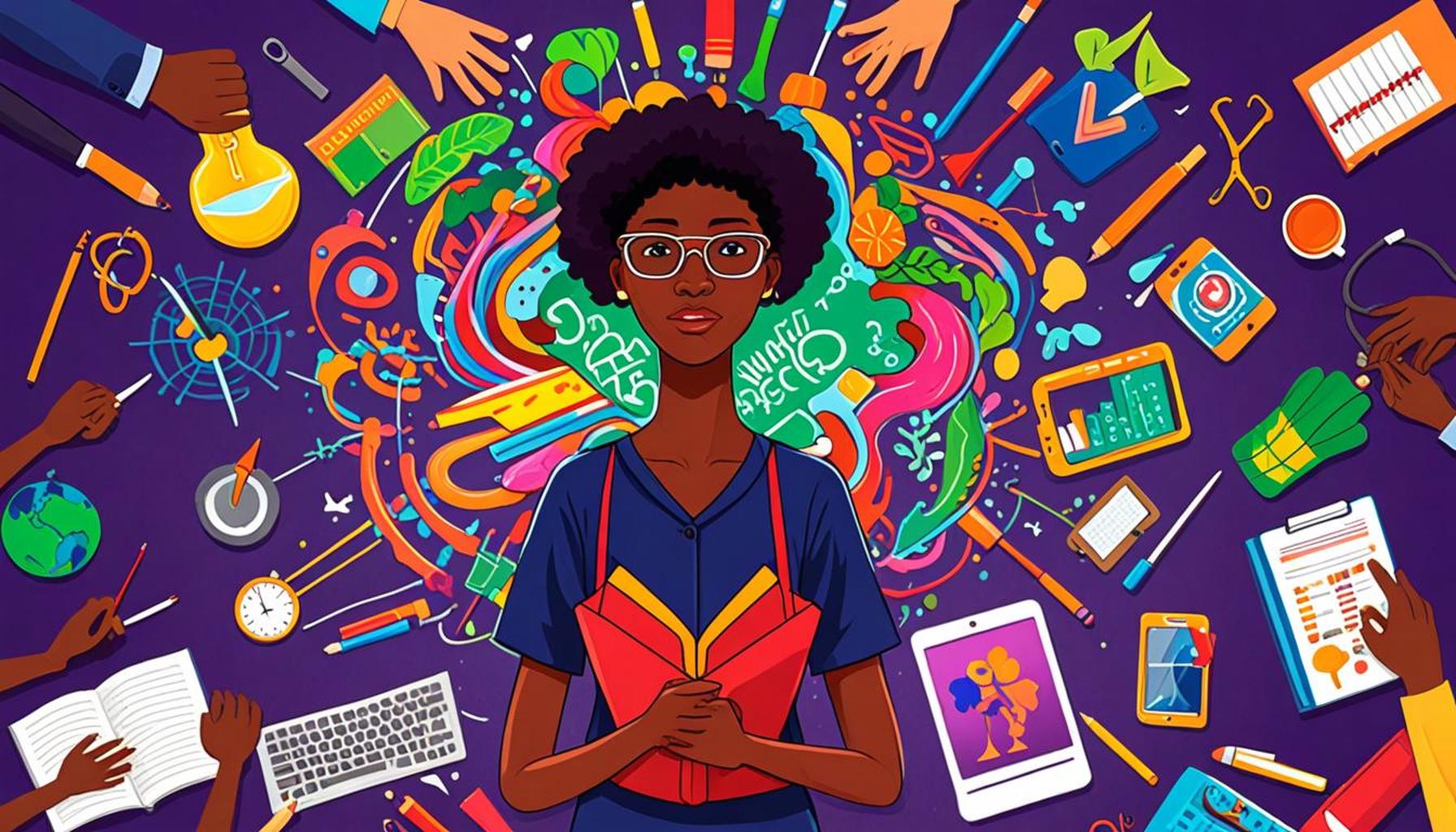Error-Based Learning Strategies and Their Contribution to the Development of a Growth Mindset

Understanding the Role of Errors in Learning
In the journey of education, making mistakes is often seen as a setback. However, recent studies illuminate that error-based learning strategies can significantly foster a growth mindset. This educational approach emphasizes that errors should not be viewed as failures but rather as essential stepping stones toward mastery and deeper understanding.
Key Advantages of Error-Based Learning
Implementing error-based learning can provide various benefits that resonate deeply within the educational framework. For instance:
- Encouragement of Resilience: When learners are encouraged to embrace their mistakes, they develop a sense of resilience. Instead of being disheartened by errors, students learn to analyze their missteps, leading to improved problem-solving skills. This resilience is crucial in a country like Nigeria, where students often face multifaceted challenges in the educational system.
- Adaptability Enhancement: Students trained to manage and learn from their errors cultivate adaptability. When setbacks occur, they can adjust their approaches and strategies effectively. This adaptability is vital in navigating various learning environments and unexpected academic hurdles, fostering lifelong skills that extend beyond traditional schooling.
- Critical Thinking Skills: Analyzing errors promotes deeper understanding of concepts, encouraging critical thinking. This analytical approach not only aids in grasping content more thoroughly but also prepares students for real-world challenges where comprehension and innovation are necessary.
In Nigeria, where education systems are continually evolving, integrating error-based learning strategies can effectively address specific challenges such as large classroom sizes and diverse learning abilities. By framing errors in a positive light, educators can inspire students to view challenges differently, reinforcing the idea that every mistake is an opportunity for growth. This shift is significant in nurturing a culture where learning from mistakes is not only accepted but celebrated, ultimately leading to a more robust educational experience.
The Connection to Growth Mindset
Developing a growth mindset is centered on the understanding that skills and intelligence can be cultivated through effort and perseverance. This mindset is intimately connected to how individuals perceive their errors. By fostering a nurturing learning environment that positively reinforces the learning process through mistakes, students become more inclined to embrace challenges and persist, even when the going gets tough.
As we delve deeper into the relationship between error-based learning strategies and growth mindset, we uncover transformative insights that have the potential to reshape educational practices across Nigeria and beyond. Schools can introduce programs that encourage students to share their mistakes openly, creating classrooms where vulnerability is seen as a strength. This could lead to a new era in education, one where creativity flourishes and each error becomes a rung on the ladder to success.

SEE ALSO: Click here to read another article
Embracing Mistakes as Learning Opportunities
To fully grasp the impact of error-based learning strategies, it’s essential to understand how embracing mistakes transforms the educational landscape. In contrast to traditional views that cast aside errors as failures, these innovative strategies prioritize missteps as integral components of the learning process. This paradigm shift lays the groundwork for developing a growth mindset, allowing students to realize that their abilities can evolve through dedication and hard work.
The Psychological Shift in Perception
Key to the success of error-based learning is the psychological shift it inspires in students. Rather than fearing failure, learners begin to view it as a valuable part of their educational journey. This shift can lead to several distinct advantages, including:
- Increased Engagement: Students who understand the relevance of their mistakes are more likely to engage in their learning process actively. By fostering an environment where errors are analyzed and discussed, teachers can ignite curiosity and enthusiasm. In Nigerian classrooms, where engagement often wanes, utilizing error-based strategies can spark renewed interest in subjects.
- Peer Collaboration: Error-based learning cultivates a collaborative classroom atmosphere. When students are encouraged to share their errors and the lessons learned from them, peer discussions flourish. This collaborative culture is particularly beneficial in diverse Nigerian classrooms, where students from various backgrounds can learn from each other’s experiences, enriching the learning environment.
- Enhanced Self-Efficacy: When students practice reflecting on their mistakes, they build confidence in their problem-solving abilities. In a country like Nigeria, where competition can be intense, bolstering self-efficacy can empower students to tackle challenges head-on rather than shying away from them. This growth in confidence corresponds directly with the principles of a growth mindset.
Furthermore, integrating error-based learning strategies into educational systems can bridge educational disparities present in Nigeria. In many instances, students encounter hurdles due to large class sizes or varying educational backgrounds. By normalizing the conversation around mistakes, educators can foster inclusivity, encouraging every student to contribute to discussions without the fear of judgment.
Implementing Error-Based Learning Strategies
Educators looking to incorporate these strategies can do so through several effective methods:
- Reflection Journals: Prompting students to maintain journals where they document their errors and the insights gained can prove effective. This reflective practice promotes not only self-awareness but also critical thinking as students analyze their educational paths.
- Real-World Scenarios: Designing activities that mimic real-world challenges allows students to experience failure in a controlled setting. For example, group projects tackling social issues in Nigeria can bring personal relevance to their learning and enhance the understanding of consequences.
- Feedback Sessions: Constructive feedback that highlights areas of improvement while acknowledging effort can change how students perceive criticism. Regular feedback sessions that encourage dialogue about errors can enhance students’ comfort levels and motivate them to pursue mastery over perfection.
In aligning educational practices with the principles of error-based learning, there exists a profound opportunity to cultivate a generation of learners equipped with a resilient mindset, ready to take on life’s challenges with determination and optimism.
| Advantages | Description |
|---|---|
| Promotes Resilience | Error-based learning encourages individuals to view mistakes as valuable learning opportunities, fostering a resilient mindset. |
| Enhances Problem-Solving Skills | By analyzing errors, learners develop critical thinking and refine their problem-solving strategies, leading to a deeper understanding of concepts. |
| Encourages Lifelong Learning | This approach cultivates a mindset that embraces continuous improvement, motivating individuals to seek out new knowledge and skills. |
Error-based learning strategies lay a robust foundation for developing a growth mindset. Through the acknowledgment of mistakes as part of the learning journey, individuals not only enhance their academic performance but also acquire emotional intelligence skills essential for personal development. This approach propels individuals forward, instilling them with a passion for learning and discovery. By integrating these error-based techniques into educational frameworks, teachers and mentors can significantly influence the growth of early learners and seasoned professionals alike. Furthermore, research supports that embracing failures taps into a wealth of creativity, leading to innovative solutions in various fields. As learners navigated their educational paths, the cultivation of such a mindset establishes confidence that transcends academics, positively influencing various life aspects. The continuous pursuit of knowledge becomes an intrinsic goal, reflecting the true essence of a growth mindset.
ADDITIONAL INSIGHTS: Expand your understanding here
Transforming Educational Practices through Feedback and Adaptation
As we delve deeper into the realm of error-based learning strategies, it becomes evident that the way feedback is delivered and perceived plays a critical role in nurturing a growth mindset. Feedback, when framed correctly, can act as a catalyst for transformation, guiding students to adopt a more reflective and resilient approach to learning.
The Role of Constructive Feedback
One of the cornerstones of effective error-based learning is the quality of feedback provided to students. Constructive feedback goes beyond merely correcting mistakes; it encourages students to explore why an error occurred and to identify alternative strategies for future success. Educators can implement several techniques to enhance feedback, such as:
- Focus on Effort, Not Just Outcomes: Emphasizing the effort put forth by students allows them to appreciate their hard work, regardless of whether the immediate result was successful. In Nigeria, where academic performance can often overshadow personal growth, it’s imperative to celebrate perseverance and the learning process itself.
- Specificity Matters: Providing specific, actionable feedback helps students understand precisely where they went wrong and how they can improve. For example, instead of saying “This is incorrect,” a teacher might say, “Try to look at the underlying principles again; perhaps revisiting the foundational concepts will help you clarify your understanding.” This not only guides the learner but also encourages them to delve deeper into the material.
- Encourage a Questions-Based Approach: Prompting students to ask questions about their mistakes can lead to a more profound understanding of the content. Questions such as “What did I learn from this mistake?” or “How can I approach this differently next time?” foster critical thinking and promote a proactive attitude towards learning.
Moreover, creating a feedback loop allows students to see their progress over time. In Nigerian educational contexts, where assessments can often feel punitive, redefining feedback as an ongoing conversation can help demystify errors and promote growth.
Adapting to Individual Learner Needs
Another significant aspect of error-based learning is recognizing that students learn differently. Adaptability in teaching methods can help address the diverse needs of learners in Nigeria’s multifaceted educational environment. Educators can employ diagnostic assessments to identify specific areas where students struggle and tailor their instructional strategies accordingly. By doing so, teachers not only validate students’ unique learning pathways but also reaffirm that mistakes are part of the individualized learning journey.
By facilitating differentiated instruction, educators can engage students on a personal level. For example, small group work focused on common errors can allow peers to collaborate, share insights, and collectively enhance their understanding. This approach promotes a sense of belonging, encouraging each student to recognize that they are not alone in their learning journey. As they share their experiences with errors, students can cultivate a supportive community that reinforces a growth mindset.
Leveraging Technology for Error-Based Learning
In an increasingly digital world, technology can serve as a potent ally in implementing error-based learning strategies. Online platforms can provide instant feedback, engage students through gamified learning, and allow for self-paced exploration. For instance, educational apps that track mistakes in real time can help students analyze their weaknesses and adjust their learning strategies accordingly. This technological leverage becomes particularly pertinent in Nigeria, where access to resources may vary, making mobile learning platforms a viable option for many learners.
By combining thoughtful feedback mechanisms, adaptive learning approaches, and technology, educators in Nigeria have the opportunity to redefine the learning experience. As students learn to view their errors through a lens of growth and curiosity, they are not only better equipped to face academic challenges but also to embrace the inevitable setbacks life presents beyond the classroom.
LEARN MORE: This related article may interest you
Conclusion: Embracing Errors as Pathways to Growth
In conclusion, error-based learning strategies present a powerful framework for fostering a growth mindset among students. By transforming the perception of mistakes from sources of shame to invaluable learning opportunities, educators can significantly enhance the educational experience. The incorporation of constructive feedback, tailored instruction, and innovative technology empowers learners to develop resilience and adaptivity, essential skills for navigating both academic and life challenges.
As illustrated throughout this discourse, when teachers prioritize insightful feedback and adapt their teaching methods to meet individual needs, they not only validate students’ unique learning journeys but also enhance their overall engagement. In Nigeria, where academic pressure can often hinder personal development, promoting a culture that celebrates effort and learning from mistakes is crucial. It equips students to understand that struggles are inherent in the path to mastery.
Furthermore, leveraging technology in support of error-based learning can enhance accessibility and responsiveness, facilitating a more personalized approach to education. As mobile platforms become more integrated into the learning environment, they offer new pathways for students to reflect on their errors in real-time, thus encouraging proactive problem-solving and enhancing cognitive resilience.
Ultimately, by embracing error-based learning strategies, educators can cultivate an environment where mistakes are not feared but explored, propelling students toward a mindset rich in growth, curiosity, and lifelong learning. As Nigeria’s educational landscape continues to evolve, these strategies will play a vital role in shaping adaptable and confident learners prepared to thrive in an ever-changing world.



